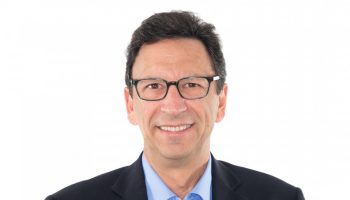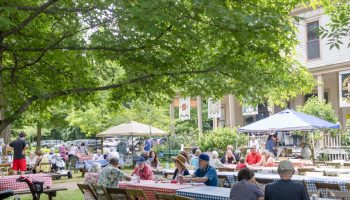This past Wednesday, I attended the Cultural Ethics Series presentation hosted by the Unitarian Universalist Fellowship of Chautauqua at the Hall of Philosophy. The speakers were Erroll and Elaine Davis, well-known Chautauquans who are deeply involved with many groups on the grounds, and specifically so with the African American Heritage House. Both took time to speak from their perspective as African Americans on the grounds — how they were introduced to Chautauqua, why they chose to return, why they built a house on the grounds, and why they continue to return to, and thrive, at Chautauqua.
I am deeply grateful to both Erroll and Elaine for naming the totality of their experience. Similar to the stories I have shared in this weekly column previously, both Erroll and Elaine shared examples of microaggressions individually — being mistaken for other Black individuals on the grounds, touching of hair, and Elaine even being asked if she was the cleaning crew for her own house. The patterns still hold; the two most common areas where things go wrong when interacting with diverse Chautauquans are when conversations start with an assumption or by highlighting a difference. The impact often is a feeling of marginalization and othering.
Despite naming these examples, what I really appreciated about the conversation was that the Davises were not only willing to be vulnerable in sharing their negative experiences, but they also shared the reasons for their deep and ever-growing love for Chautauqua. They came here when Erroll was invited as a speaker, and instantly experienced the joy of our four pillars – Arts, Religion, Education and Recreation. That sense of discovery — of having found “your people” — is a shared experience for me and the Davises. I suspect it is the case for many other Chautauquans as well. When you find your people — your community — you stick with it. And that is what the Davises did, first by gradually increasing their time on the grounds each year, and then by building a house on the grounds.
The Davises elaborated on their reasons for making Chautauqua their home, and the answer is simple: community. There are those who might argue that Chautauqua is simply a place. Sure, it is a place. Our historical grounds, our programs, the natural beauty, etc., all contribute to a sense of physical space. However, what binds us to this place are the deep relationships we form with other Chautauquans who seek the wonder, awe and joy of our four pillars. Instead of being in a simple transactional relationship with the Institution (i.e., you buy a gate pass only to receive access to certain goods — like lectures or performances), I hear from many Chautauquans that they come back year after year because of the relationships they have built over time. For property owners this may be our neighbors. It may be the staff or friends who we see every year in the denominational houses. What makes Chautauqua special, and more than just a place, is community.
One lingering question I had during Erroll and Elaine’s talk was: “What keeps some of us from imagining the Davises (and other diverse Chautauquans) as Chautauquans to begin with?” Is it a lack of many other examples of racially diverse property owners? Is it a lack of imagination? Are there presuppositions, implicit as they might be, about who wants to come to Chautauqua, and who belongs? And if we have these implicit ideas, then how might we counteract them with a different reality?
One possible answer would be to learn from the experiences of other groups that have established a presence at Chautauqua. The Jewish community, Catholic community, and the LGBTQ community might have some insights to share. I hope to organize some conversations during the 2024 Summer Assembly highlighting different diverse communities and how they established a home within Chautauqua. In the meantime, perhaps we all make a conscious choice to challenge our own implicit ideas by making a conscious choice and assumption: That racially diverse patrons chose to come here, whether it be for a day, week, season or to own a home, because of their shared love for the four pillars. If we practice and remind ourselves of that assumption, perhaps our entry into conversations and our attempts to form relationships might look a lot different.
Erroll and Elaine made the strong case for the power of community that Chautauqua has to offer. The most memorable part of the talk was when Elaine shared her love for this place, this community and what it stands for, by adding: “I love it here. I want to be buried here.” Elaine and Erroll, through their individual relationships, and through their support of the AAHH, have transformed Chautauqua. In turn, Chautauqua has transformed them. And that is how we move from belonging to love.
Amit Taneja
Senior Vice President
Chief Inclusion, Diversity, Equity & Accessibility Officer





